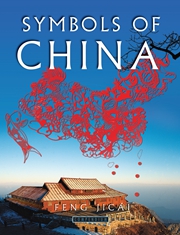Copyright Law of the People's Republic of China
Section 4 Limitations on Rights
Article 22 In the following cases, a work may be exploited without permission from, and without payment of remuneration to, the copyright owner, provided that the name of the author and the title of the work shall be mentioned and the other rights enjoyed by the copyright owner by virtue of this Law shall not be prejudiced:
(l) use of a published work for the purposes of the user's own private study, research or self-entertainment;
(2) appropriate quotation from a published work in one's own work for the purposes of introduction to, or comments on, a work, or demonstration of a point;
(3) reuse or citation, for any unavoidable reason, of a published work in newspapers, periodicals, at radio stations, television stations or any other media for the purpose of reporting current events;
(4) reprinting by newspapers or periodicals, or rebroadcasting by radio stations, television stations, or any other media, of articles on current issues relating to politics, economics or religion published by other newspapers, periodicals, or broadcast by other radio stations, television stations or any other media except where the author has declared that the reprinting and rebroadcasting is not permitted;
(5) publication in newspapers or periodicals, or broadcasting by radio stations, television stations or any other media, of a speech delivered at a public gathering, except where the author has declared that the publication or broadcasting is not permitted;
(6) translation, or reproduction in a small quantity of copies, of a published work for use by teachers or scientific researchers, in classroom teaching or scientific research, provided that the translation or reproduction shall not be published or distributed;
(7) use of a published work, within proper scope, by a State organ for the purpose of fulfilling its official duties;
(8) reproduction of a work in its collections by a library, archive, memorial hall, museum, art gallery or any similar institution, for the purposes of the display, or preservation of a copy, of the work;
(9) free-of-charge live performance of a published work and said performance neither collects any fees from the members of the public nor pays remuneration to the performers;
(10) copying, drawing, photographing or video recording of an artistic work located or on display in an outdoor public place;
(11) translation of a published work of a Chinese citizen, legal entity or any other organization from the Han language into any minority nationality language for publication and distribution within the country; and
(12) transliteration of a published work into Braille and publication of the work so transliterated.
The above limitations on rights shall be applicable also to the rights of publishers, performers, producers of sound recordings and video recordings, radio stations and television stations.
Article 23 In compiling and publishing textbooks for implementing the nine-year compulsory education and the national educational program, parts of published works, short written works, music works or single copies of works of painting or photographic works may be compiled into textbooks without the authorization from the authors, except where the authors have declared in advance the use thereof is not permitted, with remuneration paid according to the regulations, the name of the author and the title of the work indicated and without prejudice to other rights enjoyed by the copyright owners according to this Law. The above limitations on rights shall be applicable also to the rights of publishers, performers, producers of sound recordings and video recordings, radio stations and television stations.
-

Symbols of Jiangsu (Pocket Edition)
Non-FictionSymbols of Jiangsu (Pocket Edition) selects the most representative and symbolic Jiangsu special cultural resources.
-

Symbols of China
Humanities & Social Science; Non-FictionSymbols of China examines those things that make China Chinese.



